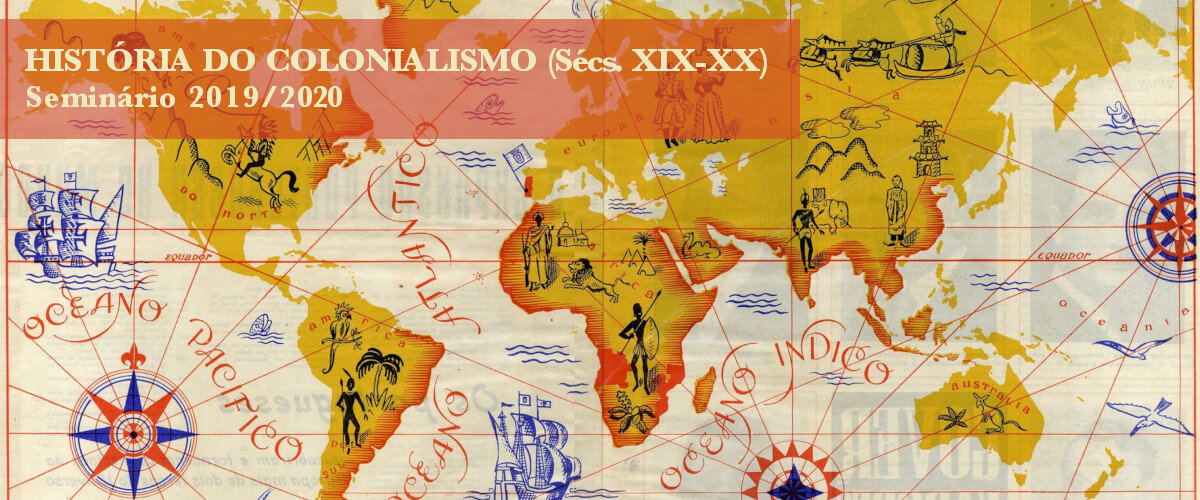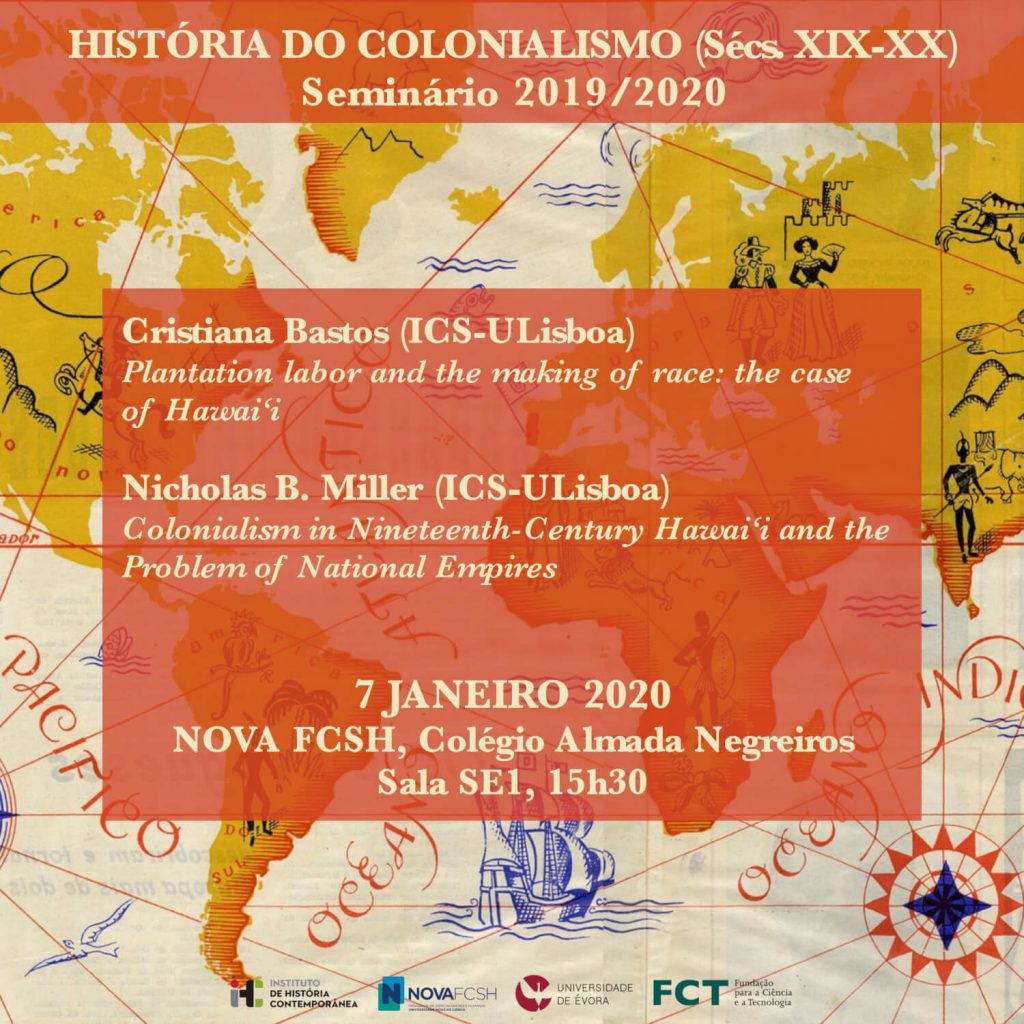janeiro, 2020

Detalhes do Evento
First session of the Research Seminar on the History of Colonialism (19th- and 20th-Centuries), dedicated to the research on the colonial past and its historical legacies. The seminar will be a
Ver mais
Detalhes do Evento
First session of the Research Seminar on the History of Colonialism (19th- and 20th-Centuries), dedicated to the research on the colonial past and its historical legacies.
The seminar will be a relaxed discussion forum, providing a welcoming environment for speakers to present their research at any stage of completion with a focus on the history of colonialism, decolonisation, and post-colonial societies in the nineteenth and twentieth centuries.
The first edition will run between January and June 2020.
Each session will feature a single presentation (between 20 and 30 minutes) or two speakers presenting on related topics (40 minutes both), which will be followed by Q&A.
It is organised by the IHC’s Thematic Line “Colonialism, Anti-Colonialism, and Post-Colonialism: Rethinking Empires and their Aftermaths”.
>> Full Programme 2020 (PDF) <<
1st Session:
Cristiana Bastos (ICS-ULisboa): Plantation labor and the making of race: the case of Hawai‘i
I will address the central concept of the project “The Colour of Labour: The Racialized Lives of Migrants” (European Research Council Advanced Grant project, ID 695573) – how plantation produces race and racialized categories – by examining labour flows across empires and beyond the traditional units of historical analysis. I will discuss in more detail the post abolition plantation society of colonial British Guiana and its contemporary counterpart of Guyana, and the peculiar case of Hawaiian Kingdom and its contemporary counterpart as a U.S.A. state. In addition, I will argue that the study of the massive recruitment of Madeiran labourers for Guianese and Hawaiian plantations in the 19th century can contribute to a major shift in the understanding of Portuguese history.
Nicholas B. Miller (ICS-ULisboa): Colonialism in Nineteenth-Century Hawai‘i and the Problem of National Empires
The history of nineteenth-century Hawai‘i is a particularly compelling site for historians of colonialism, witnessing contemporary processes of state formation, bureaucratisation, economic transformation, labour migration, land reform and Western-indigenous interactions in a polity that was, until 1898, formally independent. Scholars tend to be divided about whether to approach this history as one of extra-European state building through global knowledge transfer, as paradigmatically exhibited by Japan, or as one of “informal” colonialism. Most scholars taking the latter route tend not to stop with the label of “informal” colonialism, but go further to de-limit this as American informal colonialism. Drawing on recent work in imperial and colonial studies questioning the utility of the framework of “national” empires, I engage new developments from US history, namely the approach of borderlands history, to critique this effective nationalisation of a highly complex historical scene. Taking up the case of the history of contract labour migration to the islands, which transformed Hawai‘i’s ethnic demographics by the time of US annexation, I inquire into (i) the actors and (ii) the vectors of institutional transfer that characterised the contract labour system. I draw here on extensive research undertaken as part of the project ‘The Colour of Labour’. Reflecting on findings about the labour migration system that brought, among other individuals, over 10,000 Portuguese men, women and children to Hawai‘i as indentured labourers, I explicate links that tend not to be acknowledge in conventional scholarship on the topic: the mainly German and British actors involved in the labour system on an international politics level, and the basis of the system in contemporary indentured labour practices in the British colonial world. Through rethinking established paradigms of American empire, manifest destiny, and American exceptionalism for the history of Hawai‘i, we gain refined insights about how to name and draw space in the history of European colonialism.
Tempo
(Terça-feira) 3:30 pm - 5:00 pm
Organizador
Institute of Contemporary History — NOVA School of Social Sciences and Humanitiescomunicacao.ihc@fcsh.unl.pt Avenida de Berna, 26C - 1069-061 Lisbon

